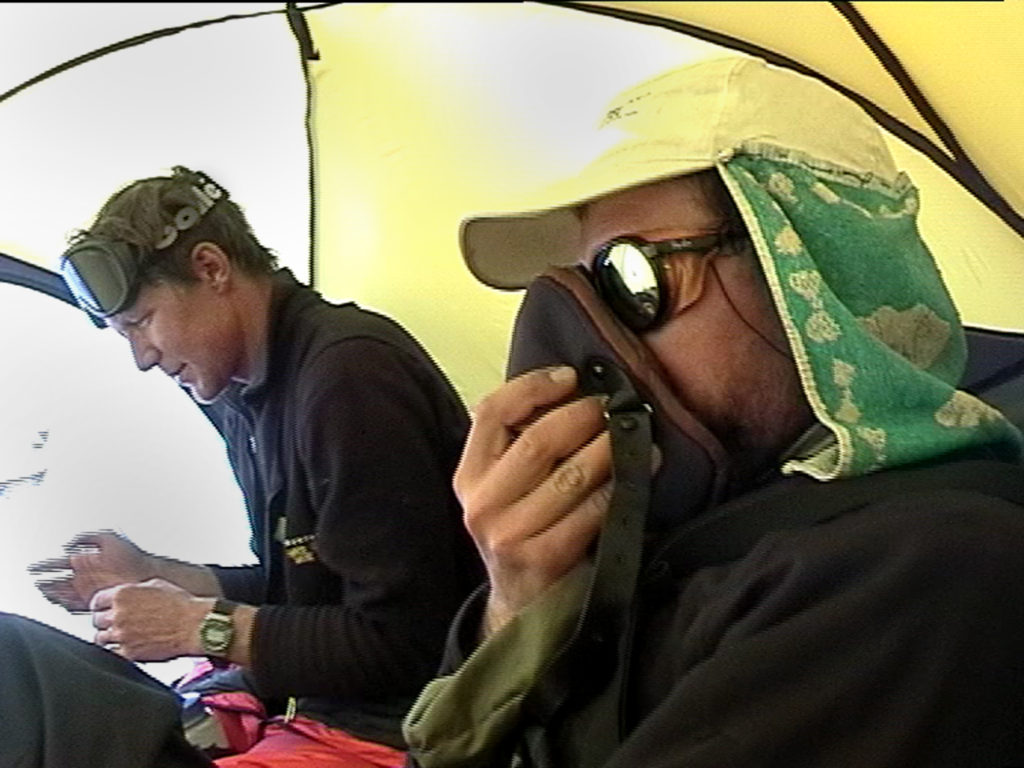Review: 4 Years in 10 Minutes (2018), by Mladen Kovačević

The point of Mladen Kovačević’s latest documentary, 4 Years in 10 Minutes, shown in the competition of IceDocs, is stated early on, in the first title card. “What I expected at the beginning of the journey, what I was going through and what I got at the end had nothing in common” might sound like a sparkling gem of banality and pseudo-philosophy, but it is true, sometimes painfully so, when it comes to climbing mountains – and especially conquering Mount Everest, which is the case here.
The course of action is predictable: it consists of an initial, casual curiosity, like in a piece of ethnological cinema; the physical and mental hardships of the ascent and descent; a bit of technical talk, just enough for viewers to realize just how dangerous the challenge is; moments of enlightenment, shock and fear; and eventually slowly returning to a “normal” life. The title, spoken by protagonist Dragan Jaćimović later on during the climactic moment on the summit, filmed in a continuous sequence, sums it up correctly, although we only see the final two months (from the end of March until the end of May 2000) of it packed into the lean running time of just over an hour. However, Kovačević’s film feels quite unique not just in its earnestness, but also thanks to his daring, borderline experimental (but still clever) ideas and the top-notch work by his crew, editor Jelena Maksimović and sound designer Jakov Munižaba (both creditable for a number of documentaries and fiction films in the ex-Yugoslav region).
There was not very much material to work with – the small volume of Jaćimović’s own amateur DV-camera footage and some 200 handwritten pages of his diary. Since the video material was not of a great quality, some fine-tuning had to be applied, especially in terms of the sound (of course, recorded simultaneously with the picture), which in the final version became an important tool for creating the atmosphere, from the rhythmic sound of bells at the beginning in a Nepalese village, underling the calmness of the moment, to the howling wind at higher altitudes enhancing the impression of the threatening situation that our protagonist-cameraman has got himself into.
On the other hand, the diary provided more to chose from for the often philosophical title cards that Kovačević uses in abundance, although they never bore the audience. He is playful with them, converting them into a means of showing the relative nature of time, which merely reflects our inner impressions: for the first two-thirds of the movie, they are shown against freeze frames and on a small portion of the screen, complete with the date, only to be later printed on a black screen and, finally, just over the running footage.
But the film’s biggest success is probably remaining faithful to the structure of the original material, thereby providing an authentic picture of climbing, regardless of the dramatic clichés. The tricky part of that is the fact that it is as much of an inner battle as it is an external challenge.
*the review is adapted from an article written for Cineuropa (and published on August 16th, 2018) by the same author
Country: Serbia
Language: Serbian
Runtime: 63 min.
Production: Iva Plemić Divjak
Executive Producer: Ruth Reid
Written & directed by: Mladen Kovačević
Sound Design: Jakov Munižaba
Sound Effects Editing: Dora Filipović
Color Grading: Dušan Grubin
Editing: Jelena Maksimovic
Graphic Design: Marija Stanković
With: Dragan Jaćimović
















